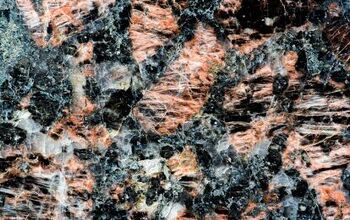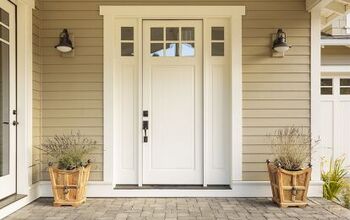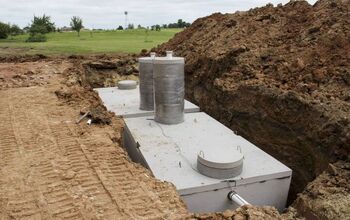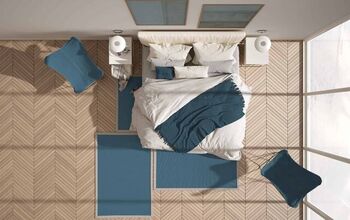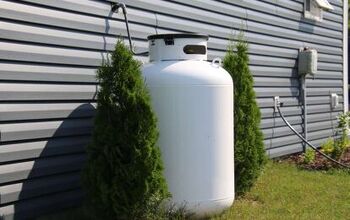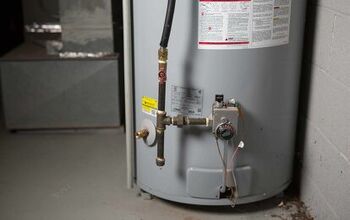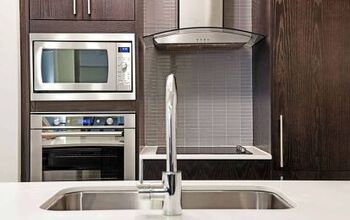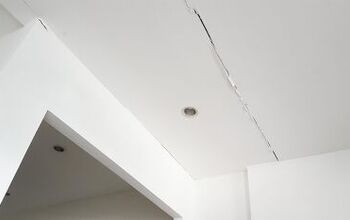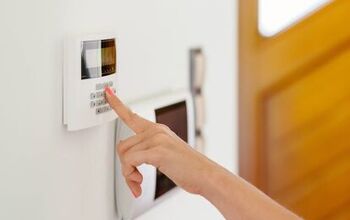Can Dog Pee Ruin Tile Floors?

For dog lovers who also love their floors, there is a common question: is it possible to have a dog (who pees in the house) while still maintaining impeccable floors? Fortunately, there is a way. As with all things in life, though, there are a few things to take into consideration if you want to be successful in protecting your floors.
Dog urine can damage and ruin tile floors if you aren’t able to clean it up when it’s fresh. Tile is porous and can soak up dog urine which leads to bacteria growth and damage. This can weaken, discolor, stain, and damage your tile over time.
Do You Need Tile and Grout Cleaning?
Get free, zero-commitment quotes from pro contractors near you.

How Can Dogs Ruin Tile Floors?
Tile floors are incredibly resilient. They hold up to just about everything your dog can throw at them, except when it comes to urine. Whether your dog is large, small, or somewhere in between, its pee is the most likely thing to negatively impact the tiles and grout in your home.
Contrary to what many believe about tile floors, the materials that are used to produce tiles are actually quite porous. This means that tiles can soak up liquids given enough time. When that liquid is pee, stains, bad odors, and bacteria buildup are the result.
Types of Damage from Urine
There are two main issues that come from urine on a tile floor. One is staining and the other is etching.Staining occurs when the color of urine seeps into the surface of the tile. This happens much faster on tiles that are softer, such as marble.
When urine first hits flooring it has a pH of roughly 6. However, as it dries, the pH increases to about 10 or 12 on the scale. Once the urine is completely dry, the high pH can often cause changes to the color of the surface it is on. This is caused by a direct effect of oxidation and a negative reaction with the surface.
An easy way to tell if you are looking at staining or etching is that stains from urine are often darker in color. Etching, on the other hand, occurs when the uric acid ‘burns’ an area of the surface. This happens when acidic substances, like urine or even vomit, are left on tile or grout for too long. Again, this happens much faster on surfaces that are softer and more porous, but it can also happen to the hardest of tiles if left unchecked.
Prevention and Maintenance
While it’s certainly true that dog urine can damage tile floors when left unchecked, there are steps you can take to protect your floors.
The first thing you can do to reduce the possibility of dog urine stains on your floor is to provide your dog with ample opportunities to relieve itself in designated areas. This may be pee pads indoors, a dog door built into an outward-facing door, or regular walks.
If avoiding the problem is impossible, however, be sure to mop up urine as soon as you see it. Using a cleaning product that has been designed for pet urine on tile floors is also helpful when the problem is discovered because these types of products focus on some of the more damaging aspects of pet urine.
Other than that, regularly sealing your tile floors and grout will help protect them from future damage.
Removing Odor
To remove odor from pet urine, important to know where the order is coming from in the first place. Unlike many other substances that can leave a smell in your floors, urine contains uric acid which can only be removed with products focused on breaking those uric acid crystals down.
It may be tempting to attack stain and odor with harsh chemicals and bleach, but most types of soap have little to no effect on uric acid crystals. For that reason, using a cleaner with the right enzymes is the most effective solution to the problem.
There are quite a few enzyme-based cleaners on the market to choose from, with some even focused on particular dog breeds and floor types.
Removing Stains from Tiles
There are a few different factors that should be considered when removing dog urine stains from tiles. The first is how porous the tiles are. Some materials like high-grade granite (insert link here), ceramic, and porcelain, are fairly non-porous and will not soak up dog urine very quickly.
There are some tiles that are much softer in composure and will stain much faster. Limestone, marble, low-grade granite, and travertine tile are a few examples of tile types that you should avoid.
To remove stains from tile, you can first try to use a mixture of hydrogen peroxide as they do a good job of removing stains and killing the germs that will later become problematic. If traditional methods do not work, enzymatic cleaners will certainly help.
Removing Stains from Grout
Both dog and cat urine is often left on the floor for several hours, especially if you’re not at home, asleep, or simply do not notice it. If pet urine isn’t cleaned quickly, it can cause irreversible damage and staining to your grout.
Grout is a bit more difficult to clean than tile. Due to the soft, porous nature of grout, urine quickly seeps into the grout. To clean urine out of the grout, a mixture of baking soda and water can be rubbed into the grout with a toothbrush or tile brush until the stain has been removed.
However, if the urine is not removed immediately and is left to dry on the surface, staining can become permanent. At this point the damage becomes irreversible and a DIY grout cleaning method simply won’t remove stains caused by urine. In order to get these types of deep stains removed, you need to enlist the help of a professional.
Sealing Grout
In order to protect your grout from stain damage caused by pet urine, pet owners should have their grout sealed. This process wills safeguard the grout against staining, discoloration, and also daily dirt and grime. As an added bonus, sealing your grout makes cleanup much easier and will extend the life of your tile surfaces.
Although sealing does protect against stains, messes that are left unattended for an extended period of time can becomes become etches. Put simply, etching, or tiny cracks in the surface, cannot be reversed by sealing. The damage caused by etching will eventually lead to crumbling, necessitate tile regrouting.
When Is It Time to Regrout?
Sometimes, urine can be left in tile grout for too long. When this happens, something called etching occurs. Etching will lead to grout cracking and pieces will eventually begin falling out.
You will know when it is time to regrout because it will become impossible to clean the stains from pet urine from the grout. The acidic nature of the urine, combined with the bacterial growth, has already begun to affect the integrity of the grout by the time you notice permanent staining.
Alternative Flooring Materials
If you are unsure about which types of floors are best for your pet, here is a list of options other than tile floors that are also good to consider.
Bamboo Flooring
Bamboo flooring is not something that a lot of people would think about when looking for a flooring material suitable for a canine. It is, however, an excellent choice. Bamboo is naturally very hard, so scratching is not an issue. Additionally, it does not soak up liquids or stain as fast as many other flooring options.
Laminate Flooring
Laminate flooring, like bamboo, is harder than many woods. This makes it a great choice for dogs. You want a hard floor to reduce scratching. Laminates are also non-absorbent which is always a plus when looking for a flooring material that will help reduce the impact of pet urine.
Related Questions
How do you get the smell of dog urine out of tile floors and grout?
There are a couple of methods that you can use to get the smell of dog urine out of tile floors. One of the most popular methods is a two-step process including vinegar and an enzyme cleaner.This combination is popular because of its effectiveness and lack of harsh chemicals. Getting the smell of urine out of grout follows a similar process but requires more scrubbing and patience.
Is grout damaged by dog urine fixable?
Yes and no. Urine can be cleaned out of grout if you identify the problem early enough. If etching has occurred, there is a very good chance that at least some of the grout will have to be replaced.
Do You Need Tile and Grout Cleaning?
Get free, zero-commitment quotes from pro contractors near you.

Final Thoughts
Although tile flooring can really take a beating, it is crucial that you protect them it stains and etching. If you are pet owner, you must prevent damage to your tile caused by your pets, as their urine can produce significant damage to both the surface and the grout.
The best way to protect your tile floors from dog urine is to commit to regular cleanings, clean up messes immediately, and seal your flooring.

Benjamin is a proud homeowner who loves to write about DIY projects and home improvement projects. Traveling, perfecting his home, and spending time with his family are just a few of the many things that keep him inspired.
More by Benjamin Wright



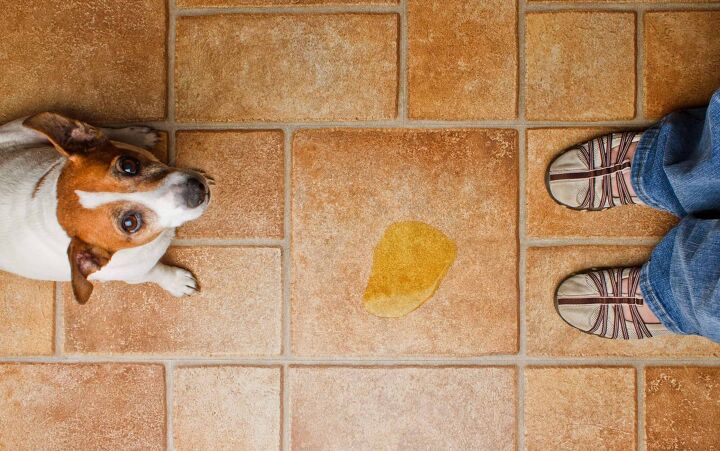
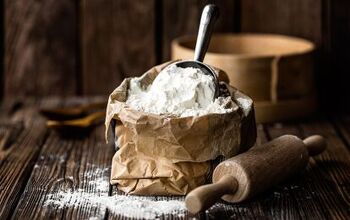





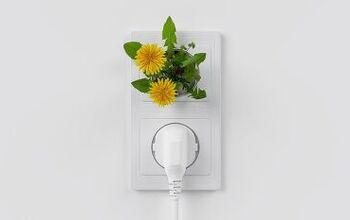
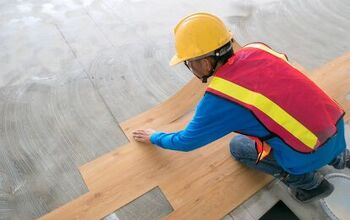
![10 Best Scroll Saws for 2022 [Ultimate Reviews & Buyer's Guide]](https://cdn-fastly.upgradedhome.com/media/2023/07/31/9070684/10-best-scroll-saws-for-2022-ultimate-reviews-buyer-s-guide.jpg?size=350x220)
